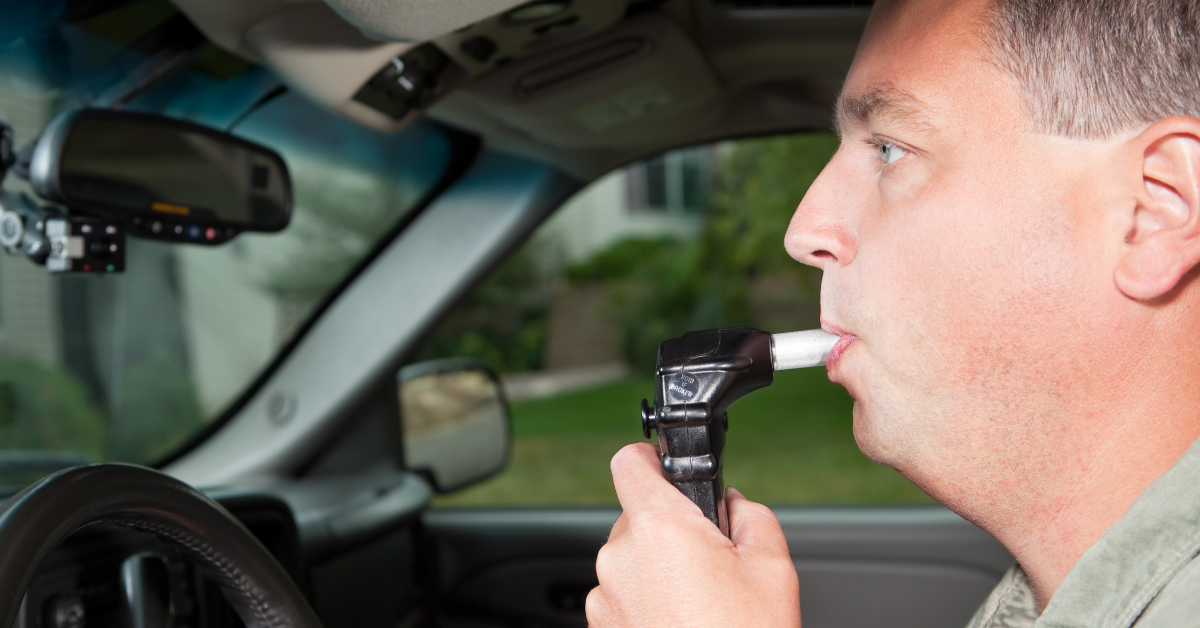What Is an Ignition Interlock Device?
When charged with a DUI, if found guilty, you will be subject to certain limitations on your ability to drive. Most common of these limitations is a suspension of your license for a period of time. When your license is eventually reinstated, you may be required to have an ignition interlock device (IID) installed in your vehicle. The IID is a device that works a lot like the breathalyzer that police use during traffic stops, but with one big difference. The IID prevents you from operating your vehicle if you have alcohol in your system, as a way to prevent you from driving under the influence.

How Do Ignition Interlock Devices Work?
Ignition interlock devices are installed in your vehicle by a trained professional. The IID is about the size of a cell phone and is connected to the car’s ignition system. Once installed, the device prevents your vehicle from being started, unless a breath sample is provided. If any alcohol is detected, your vehicle will not start. It is important to realize that the device does not prevent you from driving only if you are above the legal limit, but if your BAC is .02 or above. For most people that is only one drink, meaning that any drinking at all will likely render your car unable to start. The IID will also periodically require you to re-test at random while operating the vehicle. This is to prevent someone else from starting your car for you and to prevent the consumption of alcohol while already driving.
Massachusetts Laws for Ignition Interlock Devices
The use of ignition interlock devices in the state of Massachusetts is mainly governed by one piece of legislation. The Commonwealth of Massachusetts passed this legislation, known as “Melanie’s Law”, on October 28, 2005. The purpose of Melanie’s Law was to increase the severity of the penalties imposed upon people who are convicted of operating a motor vehicle under the influence of alcohol or controlled substances. Melanie’s Law imposes IID use on anyone with two or more OUI convictions. Anyone with this amount of OUIs will have their license suspended for a period of time determined by the courts. When it is time for the suspended license to be reinstated, the operator will be required to have an IID installed. In Massachusetts, people who have their licenses suspended are allowed to apply for what is known as a “hardship license”. A hardship license can be obtained if a person with a suspended license can prove that they require a vehicle and that they will not endanger the public with their driving. Anyone granted a hardship license is required to have an IID installed in any vehicle they own or operate.
Do I Have to Get an Ignition Interlock Device?
Many people assume that when they are convicted of Operating Under the Influence, they will be required to have an ignition interlock device installed in their car. However, this is not the case at all. You will only be required to have an IID installed in your vehicle through a court mandate. This will usually not happen until you have two OUI convictions, which will result in Melanie’s Law applying to you. If your license is suspended due to an event unrelated to an OUI, such as reckless driving, there will be no need to have an IID installed at all.
How Long Do I Need an Ignition Interlock Device?
How long you will have the ignition interlock device installed in your car will vary based on your circumstances. In general, your license will be suspended after you are convicted of your second OUI. You will then be required to utilize the IID for two years after your license is reinstated. However, if you have received a hardship license then you will have your IID for longer than two years. You will be required to use the IID for as long as you have a hardship license, and then you will have to keep the IID for an additional two years once your full license has been reinstated.
Where Can I Get an Ignition Interlock Device Installed?
When you have your full license reinstated, or are granted a hardship license, the RMV Hearings officer will make sure you are provided with a list of approved vendors/service providers who are capable of installing an ignition interlock device in any and all cars that you own or operate. The IRR must be installed by a vendor that is on the approved vendor list. It is paramount to understand that you are not permitted to drive yourself to have the IRR installed, as there are no exceptions made for the IRR restriction. To drive at all before having the device installed is breaking the law and if caught you are likely to have your license suspended again.
Does an Ignition Interlock Device Damage a Car?
There is no need to worry that an ignition interlock device will damage your car. When installed by a professional and licensed vendor the IRR will not do any damage to your vehicle. When eventually removed, your car will operate exactly as before it had the IRR installed. This applies whether your car is brand new or an older model.
Disclaimer
The information contained in this blog is for general information purposes only. Bonville & Howard assumes no responsibility for errors or omissions in the contents of the blog.
In no event shall Bonville & Howard be liable for any special, direct, indirect, consequential, or incidental damages or any damages whatsoever, whether in an action of contract, negligence, or other tort, arising out of or in connection with the use of this blog or the contents of this blog. Bonville & Howard reserves the right to make additions, deletions, or modifications to the contents of this blog at any time without prior notice.
